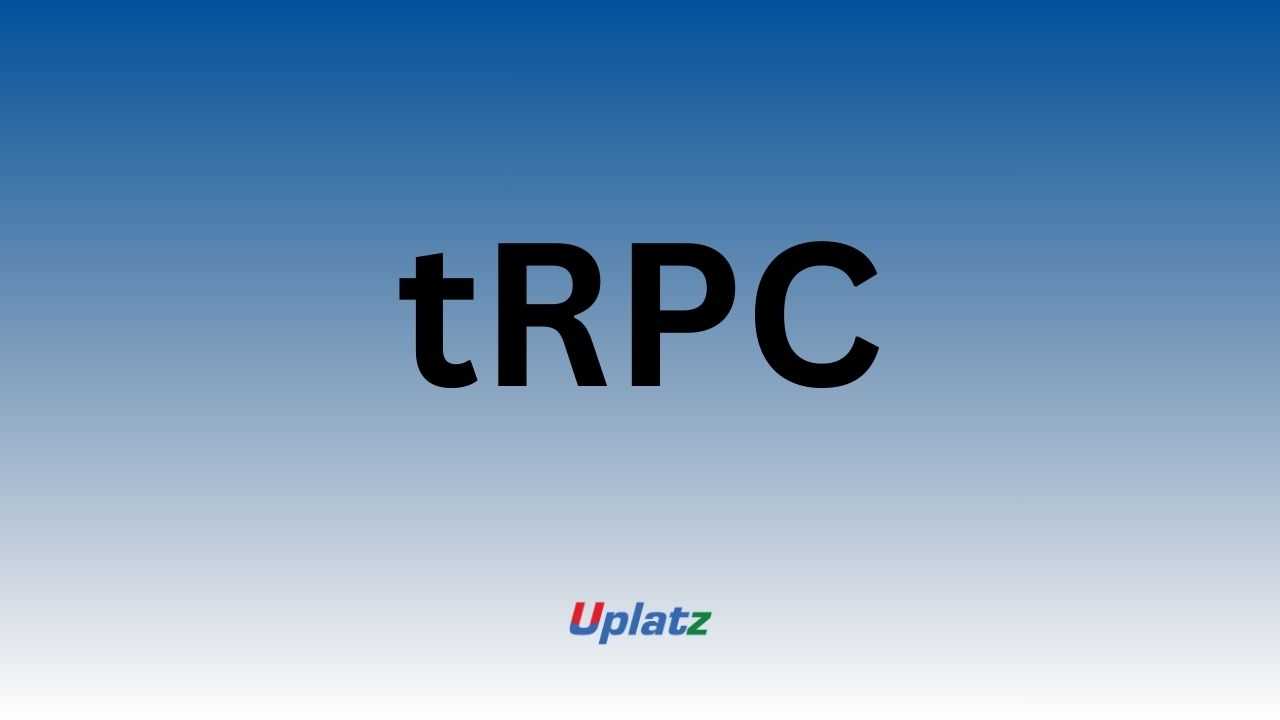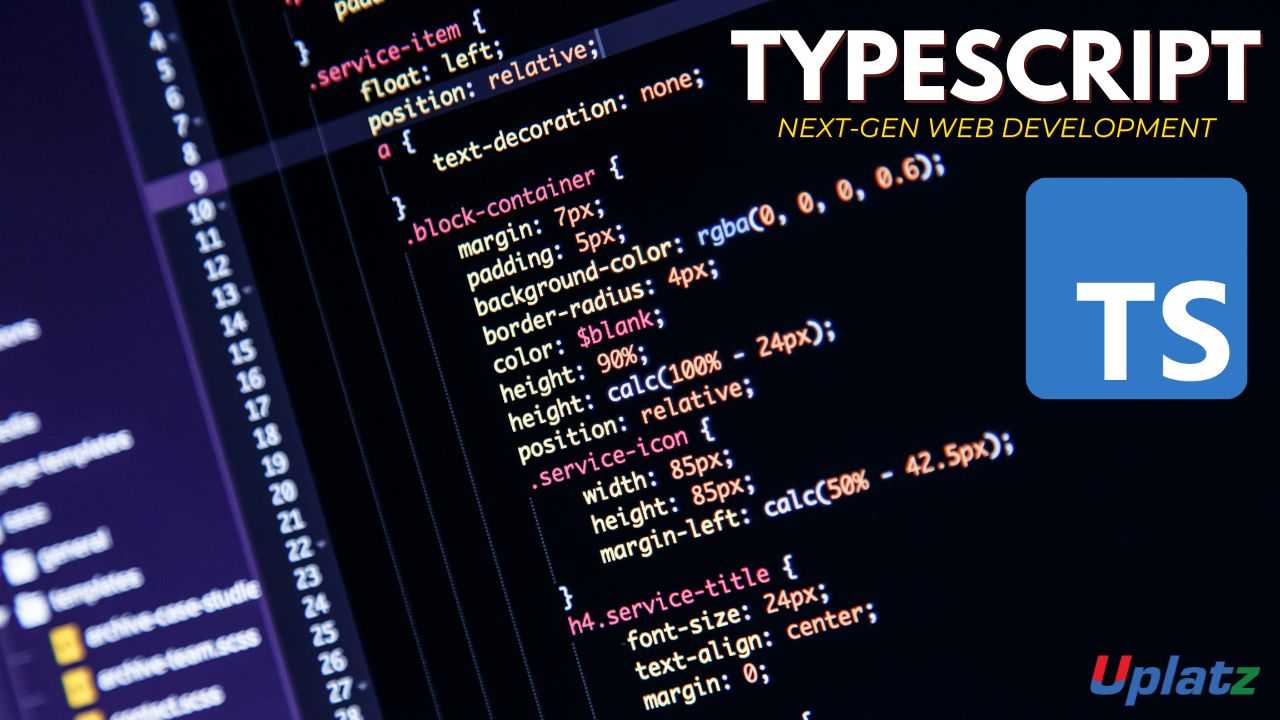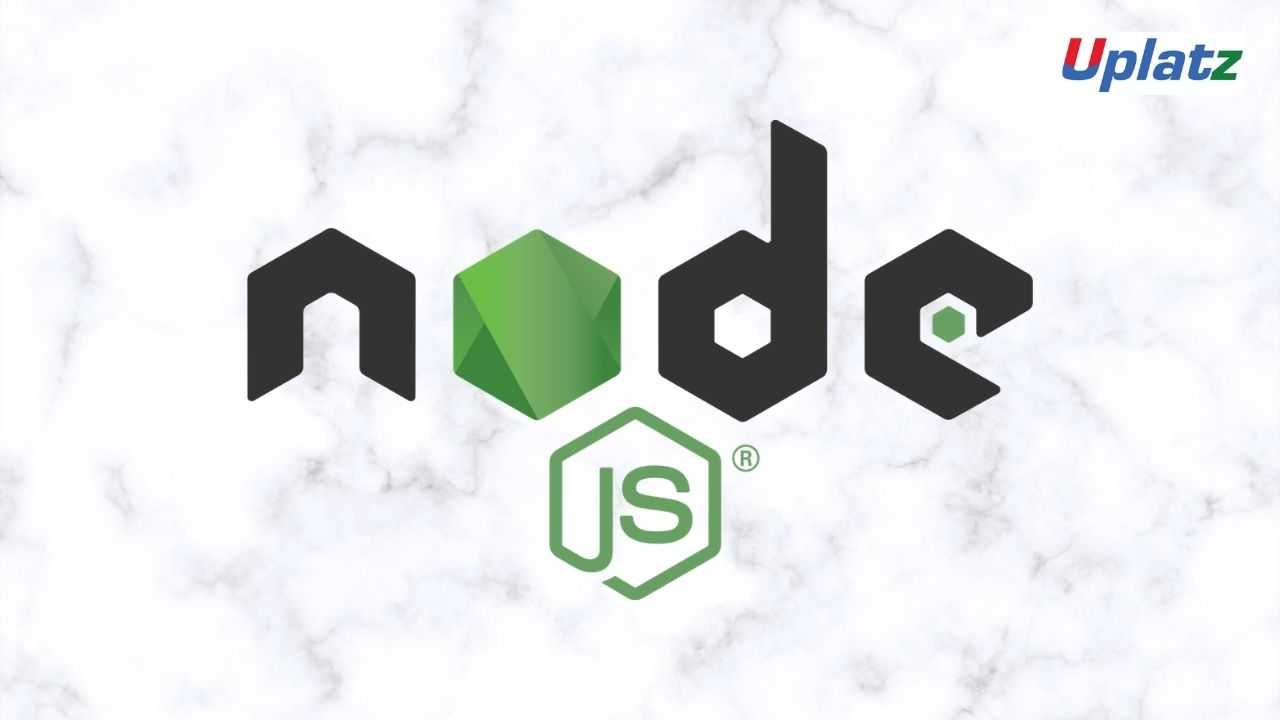tRPC
Master tRPC to build fully type-safe APIs without schemas, boosting developer productivity in modern TypeScript applications. Price Match Guarantee
Full Lifetime Access
Access on any Device
Technical Support
Secure Checkout
Course Completion Certificate
Price Match Guarantee
Full Lifetime Access
Access on any Device
Technical Support
Secure Checkout
Course Completion Certificate
 97% Started a new career
BUY THIS COURSE (GBP 29)
97% Started a new career
BUY THIS COURSE (GBP 29)
-
 85% Got a pay increase and promotion
85% Got a pay increase and promotion
Students also bought -
-

- Next.js
- 6 Hours
- GBP 12
- 876 Learners
-

- TypeScript
- 13 Hours
- GBP 29
- 4569 Learners
-

- Node.js
- 21 Hours
- GBP 12
- 1896 Learners

tRPC is a cutting-edge TypeScript library that revolutionizes how developers build and consume APIs. It allows teams to create end-to-end type-safe APIs without writing REST endpoints or GraphQL schemas. Instead, tRPC infers types directly between the backend and frontend, ensuring type consistency, eliminating boilerplate, and dramatically improving developer productivity.
This Mastering tRPC – Self-Paced Online Course by Uplatz provides a complete, project-based learning journey that takes you from core concepts to advanced integrations. You’ll explore how to design scalable, modular APIs using routers, procedures, middlewares, and validation, while maintaining seamless type inference between server and client.
By the end of the course, you’ll have mastered how to build production-ready, TypeScript-first applications with Next.js, React, or SvelteKit, powered by tRPC’s type-safe and lightweight architecture.
🔍 What is tRPC?
tRPC (TypeScript Remote Procedure Calls) is an open-source library designed to simplify API development for full-stack TypeScript applications. It removes the need for REST or GraphQL by allowing developers to define procedures on the server that are directly callable from the client — with full type inference and autocompletion in IDEs.
tRPC works seamlessly within the TypeScript ecosystem, automatically generating strongly typed function contracts between backend and frontend. This eliminates classically error-prone layers of serialization, schema duplication, and manual endpoint management.
In essence, tRPC lets you:
-
Define server functions (procedures) once and use them safely from the client.
-
Infer all input/output types automatically.
-
Build faster, safer APIs without code generation or schema sync headaches.
tRPC embodies the philosophy of “types from source” — providing a developer experience that’s fast, reliable, and 100% TypeScript-native.
⚙️ How tRPC Works
tRPC bridges the gap between the client and server using TypeScript inference. When you define API routers and procedures on the backend, their types are automatically exported to the frontend, ensuring zero mismatch between API responses and frontend expectations.
Here’s how its architecture functions:
-
Router: The root component of tRPC defining API endpoints (procedures) grouped logically.
-
Procedure: Each function (query, mutation, or subscription) that defines the business logic.
-
Middleware: Reusable functions to handle authentication, logging, rate limiting, and validation.
-
Adapters: Integrations with frameworks such as Next.js, Express, Fastify, or standalone servers.
-
Type Inference: Automatic propagation of server types to the client — no need for Swagger, OpenAPI, or code generation tools.
This tight coupling between client and server drastically reduces development time, prevents runtime errors, and improves scalability through modular routing and validation.
🏭 How tRPC is Used in the Industry
tRPC has gained rapid adoption among startups, SaaS companies, and full-stack TypeScript teams who value speed, safety, and simplicity. Its compatibility with Next.js, React, and SvelteKit makes it the go-to choice for teams building modern web applications where frontend and backend evolve together.
Typical use cases include:
-
Full-Stack Web Applications: Shared type-safe APIs between frontend and backend.
-
SaaS Platforms: Fast iteration cycles with minimal API boilerplate.
-
Internal Tools: Quick dashboards and admin panels with secure data access.
-
Developer Tools: APIs that evolve alongside the frontend for rapid prototyping.
-
Serverless Applications: Lightweight, scalable endpoints deployed on platforms like Vercel, AWS Lambda, or Cloudflare Workers.
With its strong integration into the TypeScript + React ecosystem, tRPC has become a core technology in modern web development stacks — often replacing traditional REST and GraphQL solutions.
🌟 Benefits of Learning tRPC
Learning tRPC gives you a distinct advantage in full-stack TypeScript development.
Key benefits include:
-
Type Safety End-to-End: No more mismatched types between backend and frontend.
-
Zero Boilerplate: Eliminate redundant schemas, DTOs, or code generation.
-
Full-Stack Speed: Define, test, and iterate APIs faster than with REST or GraphQL.
-
Developer Experience: Type inference, autocompletion, and runtime validation make coding intuitive.
-
Framework Compatibility: Works perfectly with Next.js, SvelteKit, and React.
-
Scalable Design: Modular routers and middlewares support large production apps.
-
Modern Career Skill: Companies adopting full TypeScript stacks increasingly value tRPC expertise.
By mastering tRPC, you’ll enhance your productivity, reduce bugs, and write more maintainable full-stack code with less friction.
📘 What You’ll Learn in This Course
This self-paced course is designed to help you go from beginner to expert in tRPC and modern API development. You will learn how to:
-
Understand tRPC architecture, routers, and procedures.
-
Build end-to-end type-safe APIs using TypeScript.
-
Use Zod for input validation and runtime safety.
-
Create queries, mutations, and subscriptions with full typing support.
-
Implement middleware for authentication and access control.
-
Integrate tRPC with Next.js, React, and SvelteKit.
-
Optimize API performance and caching.
-
Deploy tRPC apps in serverless environments (Vercel, AWS Lambda, etc.).
-
Debug and scale APIs for production workloads.
Each module includes live coding examples, real-world projects, and step-by-step explanations, ensuring both conceptual clarity and practical mastery.
🧠 How to Use This Course Effectively
-
Start with Fundamentals: Learn setup, routers, and procedures before tackling integrations.
-
Experiment Early: Build small APIs to see real-time type inference.
-
Integrate with Frontend: Connect your tRPC backend to a React or Next.js app.
-
Add Middleware: Implement logging, rate-limiting, or authentication workflows.
-
Validate Inputs: Practice using Zod for type-safe user input handling.
-
Explore Real Projects: Work through course projects like task managers or chat apps.
-
Deploy and Optimize: Deploy to serverless or Node.js environments and refine performance.
By actively coding and experimenting as you learn, you’ll internalize key tRPC design principles and gain confidence in building production-grade APIs.
👩💻 Who Should Take This Course
This course is ideal for:
-
Frontend Developers who want seamless, type-safe API integration.
-
Full-Stack Developers building TypeScript-first applications.
-
Backend Engineers exploring modern alternatives to REST or GraphQL.
-
Startups & Product Teams aiming to improve developer velocity and code quality.
-
Students & Professionals pursuing advanced full-stack or TypeScript skills.
Whether you’re an experienced engineer or new to backend APIs, this course equips you with practical, in-demand skills for building reliable, scalable web applications.
🧩 Course Format and Certification
The course is self-paced and includes:
-
HD video tutorials and real-world coding sessions.
-
Downloadable source code and API examples.
-
Assignments, quizzes, and guided projects.
-
Lifetime access with updates as tRPC evolves.
-
Integration-focused projects using Next.js and React.
Upon completion, you’ll earn a Course Completion Certificate from Uplatz, demonstrating your proficiency in tRPC, TypeScript, and modern API development.
🚀 Why This Course Stands Out
-
Comprehensive Learning Path: Covers fundamentals, integration, and deployment.
-
Hands-On Projects: Practical experience through real-world use cases.
-
TypeScript-Focused: 100% type-safe end-to-end training.
-
Industry-Relevant: Learn tools and patterns used in modern SaaS development.
-
Self-Paced Flexibility: Study at your own schedule with lifetime access.
By the end of this course, you’ll be fully equipped to build scalable, type-safe APIs and integrate them seamlessly with frontend applications — ready for professional, production-grade development.
🌐 Final Takeaway
In today’s fast-paced web development world, efficiency and safety go hand in hand. tRPC represents the next step in that evolution — eliminating redundant layers, reducing bugs, and enhancing collaboration between frontend and backend teams.
The Mastering tRPC – Self-Paced Online Course by Uplatz equips you with the knowledge, tools, and confidence to build type-safe APIs that connect directly to your frontend. Whether you’re working on startups, enterprise apps, or personal projects, tRPC empowers you to build faster and safer with TypeScript-first development.
Start learning today and take your full-stack development skills to the next level with tRPC — the future of type-safe API design.
By completing this course, learners will:
-
Build and deploy tRPC APIs with TypeScript.
-
Create modular routers and procedures.
-
Apply validation, middlewares, and error handling.
-
Integrate APIs with Next.js and other frontend frameworks.
-
Deploy scalable and secure APIs in real-world applications.
Course Syllabus
Module 1: Introduction to tRPC
-
What is tRPC?
-
Benefits over REST and GraphQL
-
Setting up a tRPC project
Module 2: Core Concepts
-
Routers and procedures
-
Queries vs mutations
-
Type inference across client and server
Module 3: Input & Output Validation
-
Using Zod for schema validation
-
Error handling in tRPC
-
Strong typing for safer APIs
Module 4: Middleware & Authentication
-
Adding middlewares in tRPC
-
Role-based access control
-
Authentication patterns (JWT, OAuth)
Module 5: Frontend Integrations
-
tRPC with Next.js
-
tRPC with React and SvelteKit
-
Data fetching and caching
Module 6: Real-World API Design
-
Modularizing routers
-
Handling nested and complex APIs
-
Optimizing API performance
Module 7: Deployment
-
Running tRPC with Node.js and Express
-
Deploying with serverless (Vercel, AWS Lambda)
-
CI/CD pipelines for tRPC apps
Module 8: Advanced Features
-
Subscriptions and real-time APIs
-
Type-safe error propagation
-
Integrating with Prisma ORM
Module 9: Real-World Projects
-
Building a task manager API with tRPC
-
E-commerce checkout API integration
-
Social app with type-safe real-time APIs
Module 10: Best Practices
-
Structuring tRPC projects
-
Security considerations
-
Scaling APIs in production
Learners will receive a Certificate of Completion from Uplatz, validating their expertise in tRPC and type-safe API development. This certification demonstrates readiness for roles in full-stack development, API engineering, and TypeScript-first application design.
tRPC skills prepare learners for roles such as:
-
Full-Stack Developer (tRPC + Next.js)
-
API Engineer (TypeScript-first)
-
Frontend Developer (React + tRPC)
-
Backend Developer (Node.js + tRPC)
-
Software Engineer (Type-safe systems)
As companies adopt TypeScript and type-safety-first development, tRPC is gaining traction as a lightweight alternative to REST/GraphQL, making it a valuable skill.
-
What is tRPC?
tRPC is a TypeScript library for building type-safe APIs without schemas, inferring types from server to client. -
How is tRPC different from GraphQL?
GraphQL requires schemas and resolvers, while tRPC infers types automatically, reducing boilerplate. -
What are routers and procedures in tRPC?
Routers group API endpoints, and procedures define queries (read) or mutations (write). -
What role does Zod play in tRPC?
Zod validates input and output data, ensuring type safety at runtime. -
How does tRPC integrate with Next.js?
Through an API handler that exposes routers to the Next.js frontend with type inference. -
What are the benefits of tRPC over REST?
-
Full type safety
-
No manual schema sync
-
Faster developer iteration
-
How does middleware work in tRPC?
Middlewares handle authentication, logging, and validation before executing procedures. -
Can tRPC handle real-time APIs?
Yes, with subscriptions and WebSockets. -
How does tRPC improve developer productivity?
By removing the need for manual API typing, reducing bugs and increasing speed. -
Where is tRPC commonly used?
In full-stack TypeScript apps, especially with Next.js, Prisma, and React.









